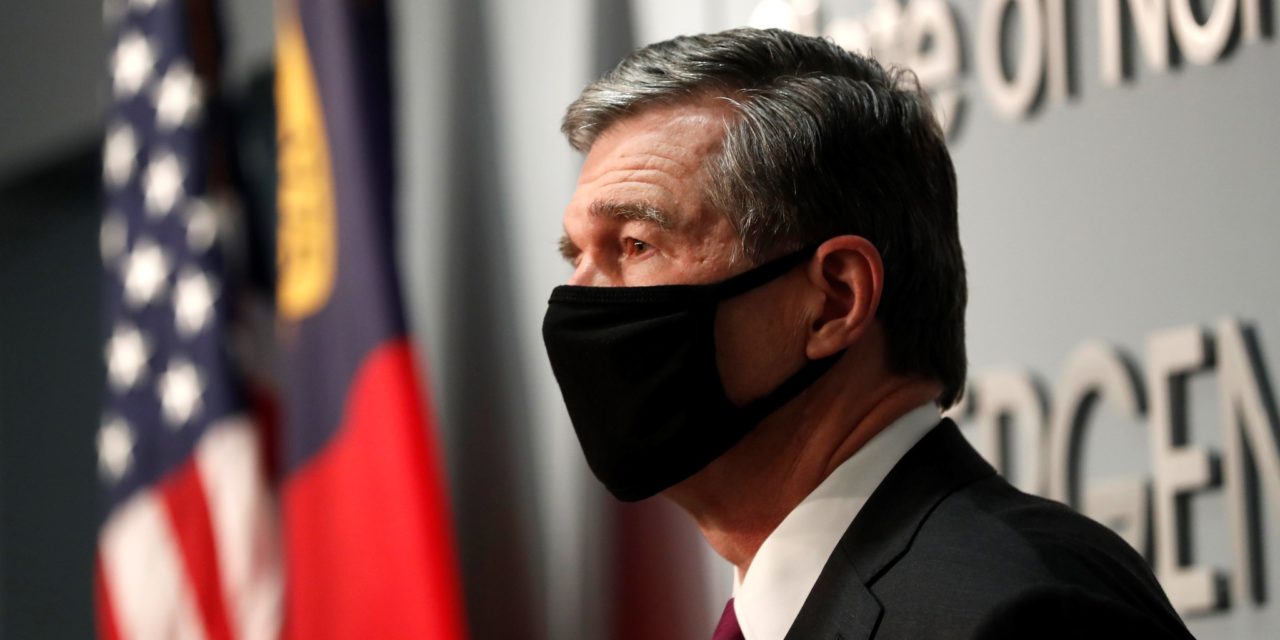Governor Roy Cooper has extended North Carolina’s stay-at-home order — which requires residents to be home from 10 p.m. to 5 a.m. — through at least Friday, January 29.
Cooper and North Carolina Department of Health and Human Services Secretary Dr. Mandy Cohen cited the rising number of COVID-19 cases in the state as the reasoning for the extension. The order was slated to expire on January 8.
“We have turned the page on a new year – one that we’re hoping will bring better times. But as we know, the virus didn’t disappear at midnight on December 31,” Cooper said. “In fact, in North Carolina, we have seen some of our highest case counts, percent positives, hospitalizations and ICU bed usage numbers in the past few days. No matter where you live, work, worship or play, COVID-19 remains a deadly threat, and we must treat it that way.”
North Carolina is reporting 582,348 coronavirus cases as of January 6 — an increase of 6,952 from the day beforehand. There are currently 3,893 residents hospitalized with COVID-19.
“We are in a very dangerous position. North Carolinians need to take immediate actions to save lives, slow the spread of the virus, and protect hospital capacity so that medical care is available to anyone who may need it, whether for COVID-19 or for any other reason,” said Cohen.
The extension of the stay-at-home order comes as North Carolina undergoes vaccine distribution. Cooper announced on Tuesday that he will deploy the National Guard to assist with the distribution efforts, saying ensuring vaccines are given to individuals “is our top priority right now.”
“As we work to prevent the spread of COVID-19, we are also helping local hospitals and health departments to support their vaccine efforts. Getting the vaccine out quickly is the most urgent priority right now, and we will use everything and everyone needed to get the job done,” Cooper said.
Data from the state’s Health and Human Services department shows that 109,799 residents have received their first dose of the COVID-19 vaccine, with 461 residents having completed the cycle. Data regarding vaccine distribution is updated every Tuesday.
Cooper’s administration confirmed that the state has begun to move into Phase 1B of vaccine distribution, which allows for residents over age 75 to receive the first dose.
Photo via the North Carolina Department of Public Safety.
Chapelboro.com does not charge subscription fees. You can support local journalism and our mission to serve the community. Contribute today – every single dollar matters.
Related Stories
‹
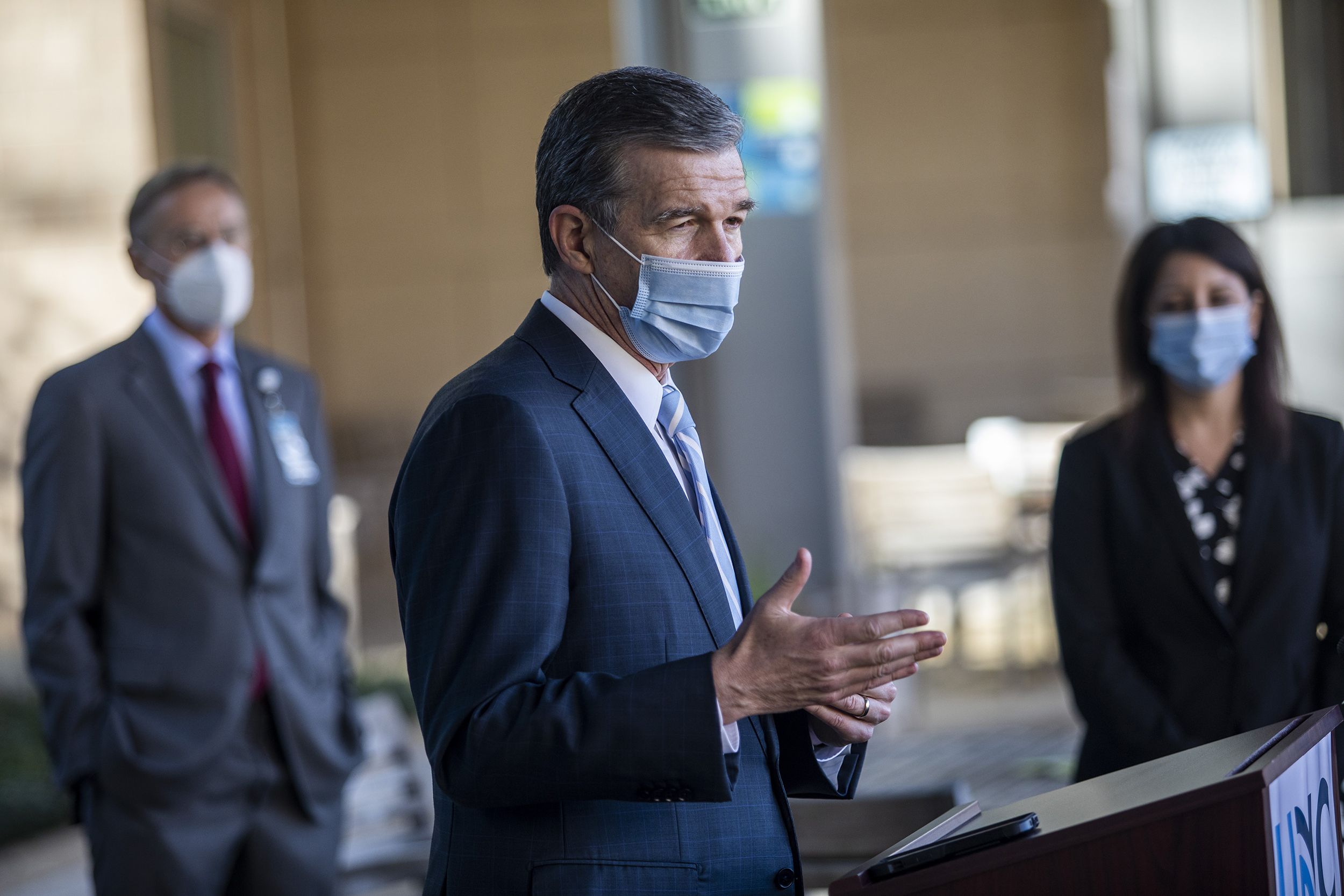
Gov. Cooper Lifts North Carolina's Mask and Social Distancing Requirements, Follows CDC GuidanceFollowing guidelines set by the Centers for Disease Control, Governor Roy Cooper announced new executive orders in North Carolina that lift most mask requirements for fully-vaccinated people and social distancing measures. Cooper shared the change to public health guidelines on Friday afternoon, marking a shift back to much of life before the coronavirus pandemic led […]
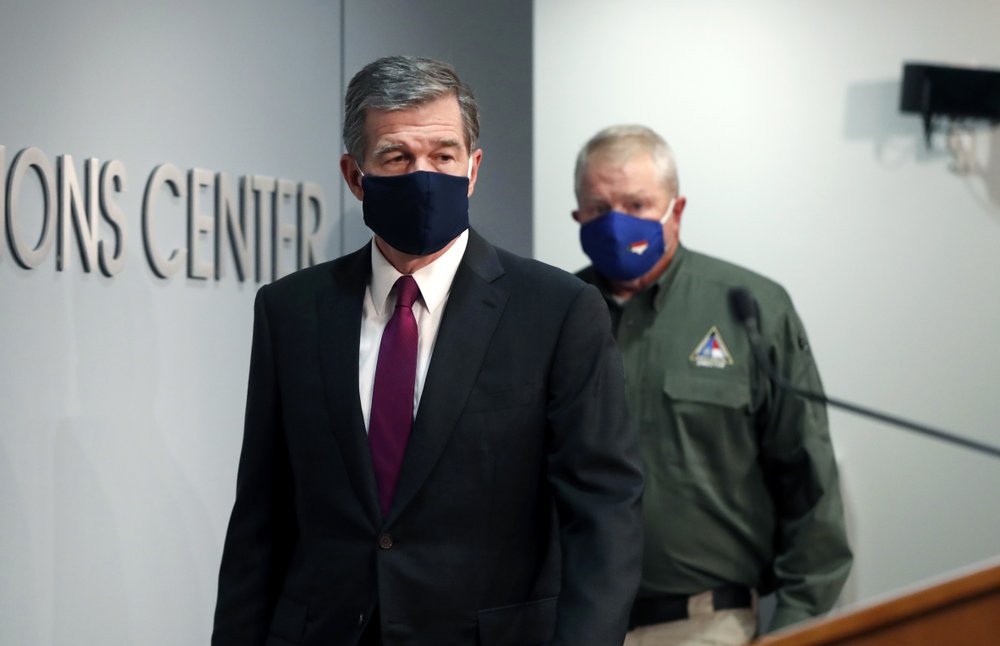
COVID-19 Restrictions, Like Outdoor Mask Wearing, Ease on Friday: Here’s What You Need to KnowAs more adults in North Carolina get vaccinated, Governor Roy Cooper recently announced a new order to ease some COVID-19 restrictions within the state. Cooper’s latest executive order, set to go into effect on Friday at 5 p.m., will scale back the requirement of wearing masks while outdoors while still requiring them indoors as a […]
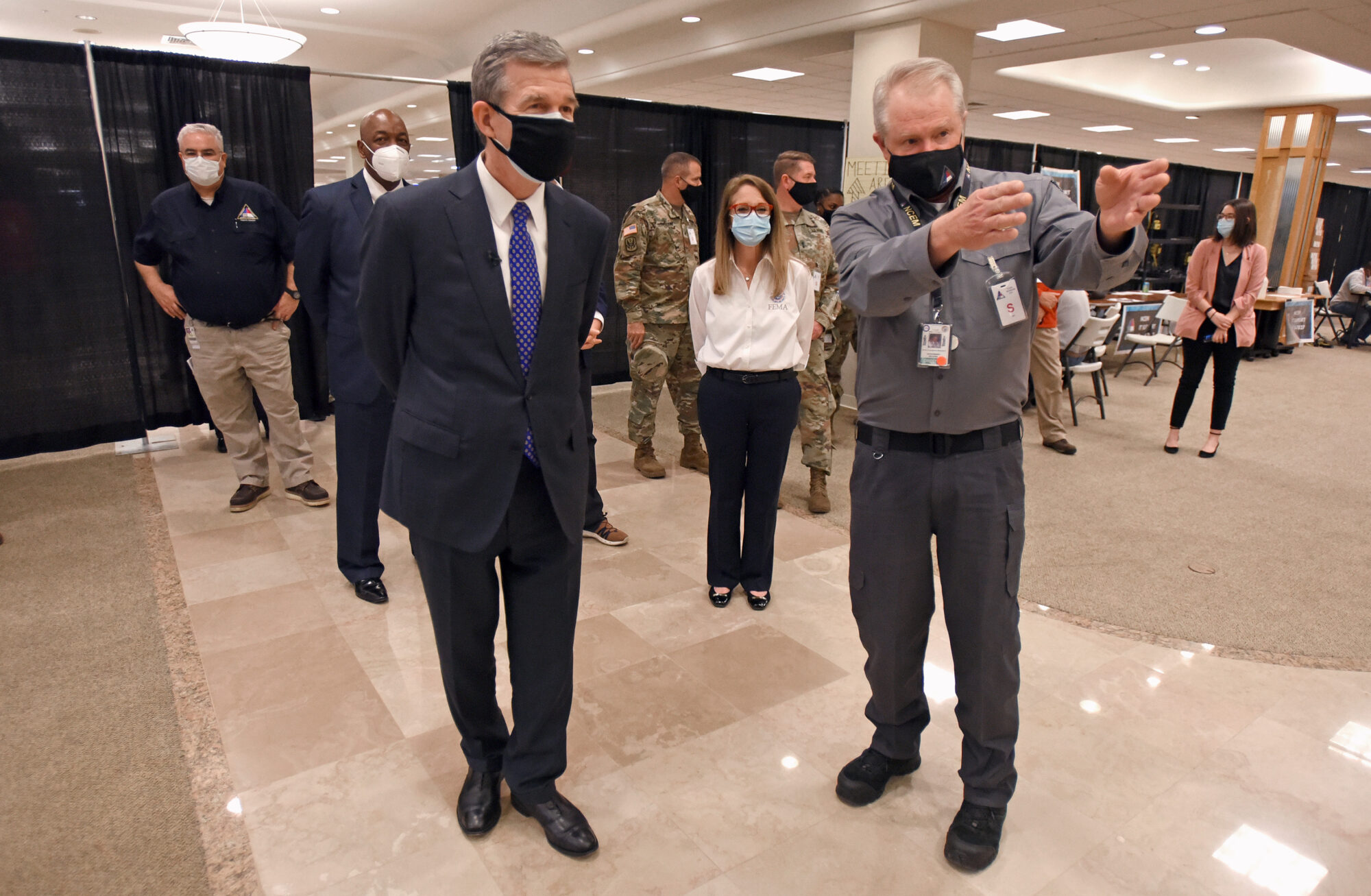
North Carolina Eased Some Pandemic Restrictions on Friday. Here's What You Need to Know.A new executive order from Governor Roy Cooper will ease some COVID-19 pandemic restrictions in North Carolina today. Under Executive Order 204 — which will go into effect on Friday at 5 p.m. — some businesses will be allowed to increase capacity up to 100 percent indoors and outdoors with safety protocols in place. This includes […]
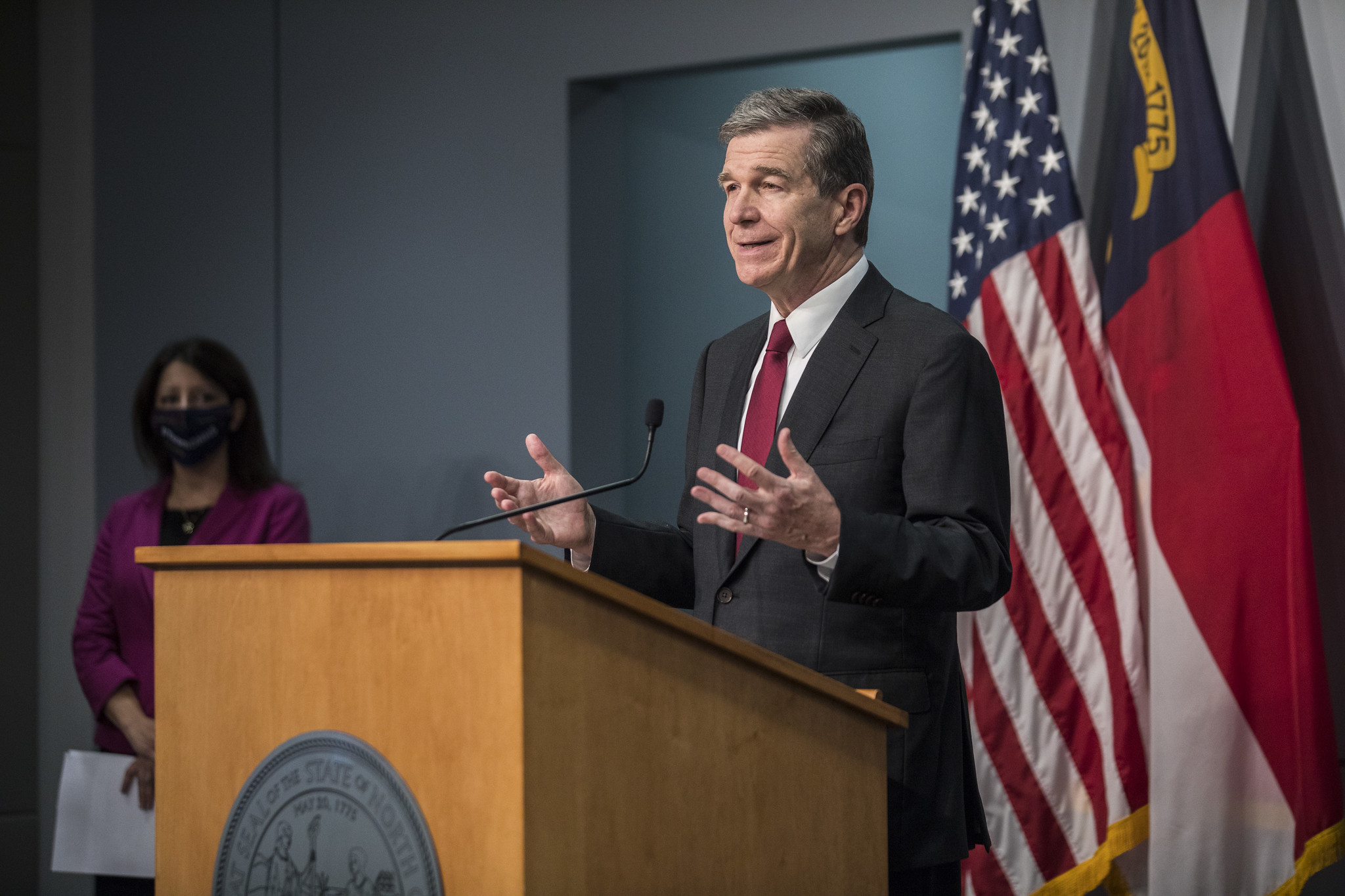
Cooper: All North Carolina Adults to Be Eligible for COVID-19 Vaccine in 2 WeeksGovernor Roy Cooper announced all North Carolina residents over the age of 16 will become eligible to receive a COVID-19 vaccine in two weeks. Cooper made the announcement Thursday, moving up the timeline for vaccination plans in the state once again. Remaining residents in Group 4 will become eligible on Wednesday, March 31, and the […]
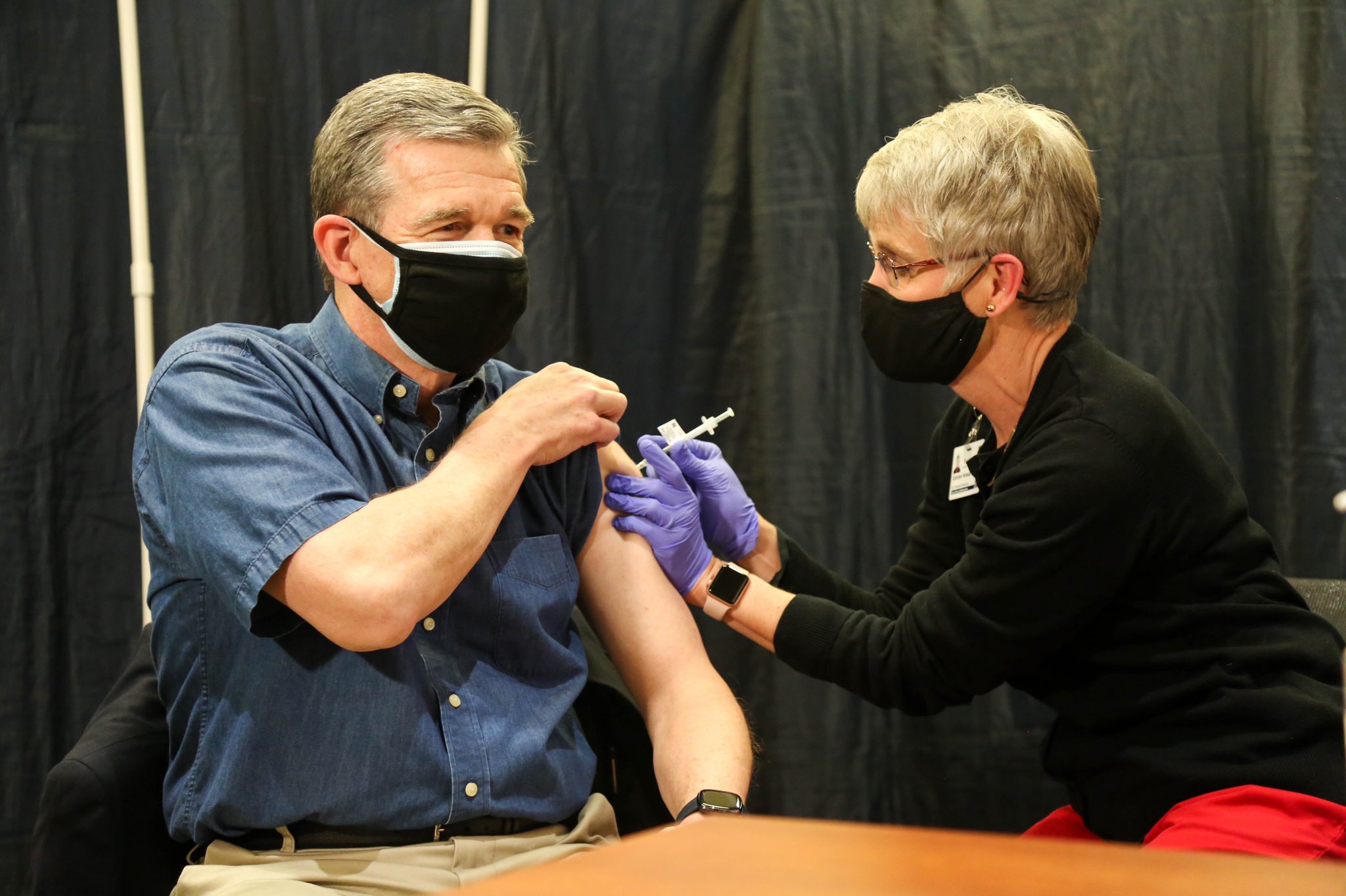
North Carolina Gov. Roy Cooper Receives COVID-19 VaccineNorth Carolina Gov. Roy Cooper received a COVID-19 vaccine Wednesday as the state expands eligibility this week with the arrival of the Johnson & Johnson vaccine. The 63-year-old Democratic governor who has long said he’d wait until it was his turn in line to get vaccinated got his first shot of the Pfizer vaccine at […]

North Carolina's COVID-19 Restrictions Ease on Friday: Here's What You Need to KnowGovernor Roy Cooper announced Executive Order 195 — which eases some pandemic restrictions and lifts North Carolina’s modified stay at home order — earlier this week. “Given the significant and sustained improvement in our COVID-19 metrics,” said Cooper, “today I am announcing that we will ease but not lift restrictions in several areas with a new […]
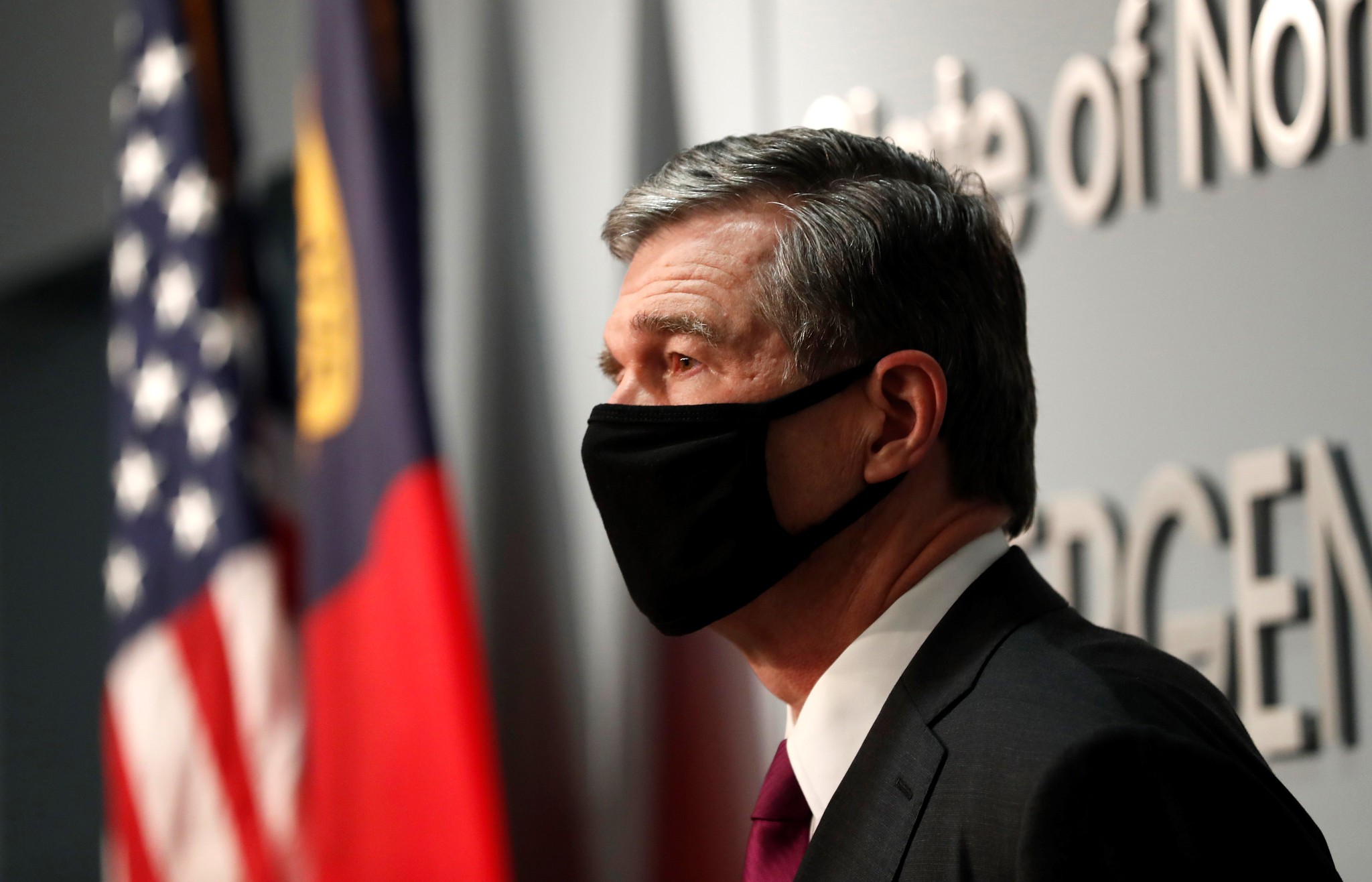
Here's What You Need to Know About NC's New Stay-at-Home OrderEarlier this week, North Carolina Governor Roy Cooper announced a nightly curfew will be put in place for the state amid rises in new COVID-19 cases and other increasing statewide trends. Cooper and Dr. Mandy Cohen, the secretary for the North Carolina Department of Health and Human Services, said the record-breaking single-day numbers for new […]
![]()
Judge Rules to Let North Carolina Bowling Alleys ReopenDozens of North Carolina bowling alleys closed since March can reopen provided they meet sanitizing and social distancing rules, a state judge ruled on Tuesday in blocking part of Gov. Roy Cooper’s COVID-19 executive orders shuttering them. Judge James Gale granted a preliminary injunction that would apply to the 75 North Carolina bowling establishments within […]
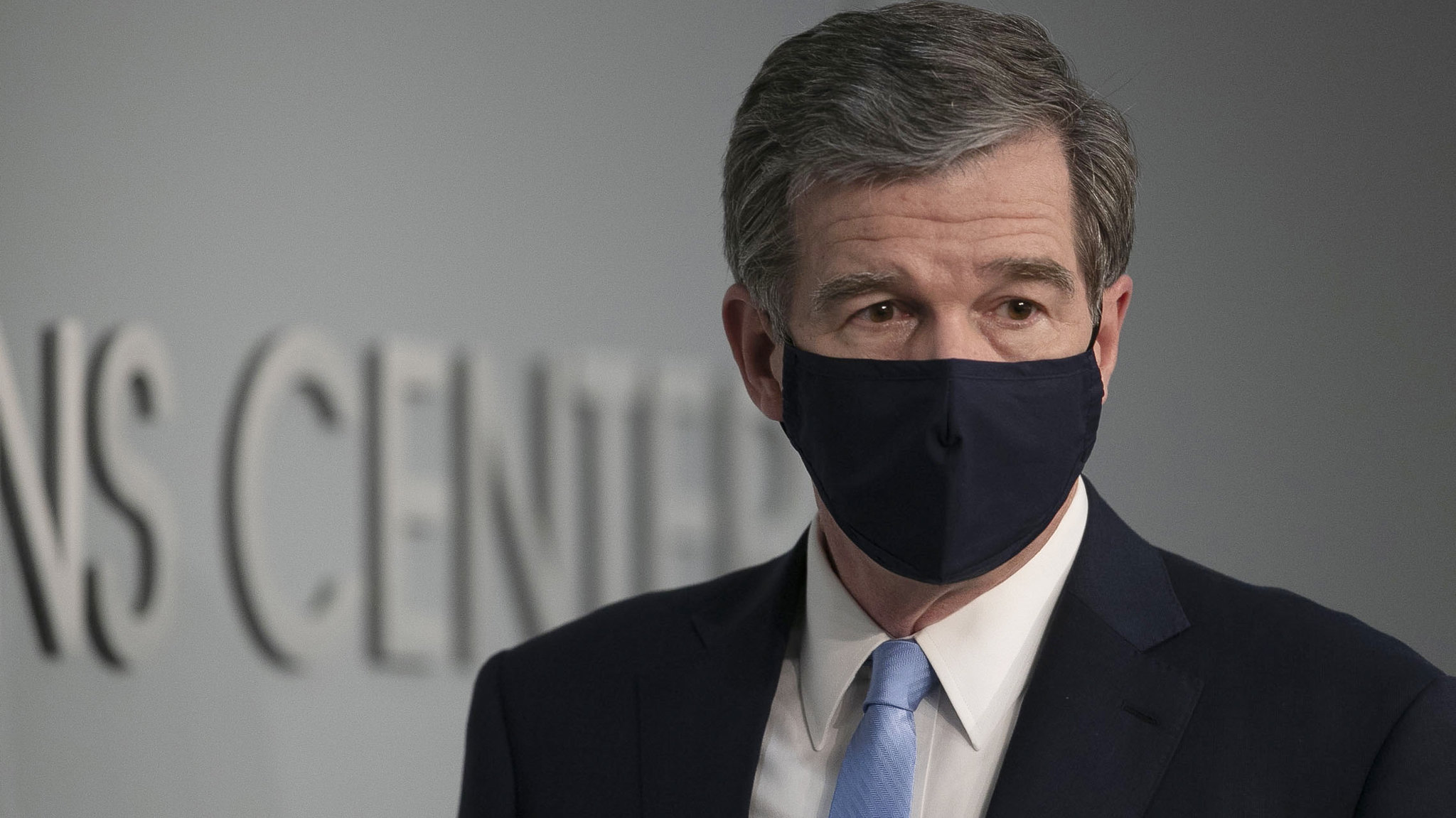
Cooper Vetoes String of North Carolina Reopening BillsNorth Carolina Gov. Roy Cooper vetoed a string of bills on Thursday passed in the Republican-controlled legislature to reopen businesses and help reignite parts of the economy most hurt by the coronavirus. With GOP lawmakers unlikely to have the votes needed to override the Democratic governor’s decision, amusement parks, entertainment venues, bars, gyms, skating rinks […]

Cooper Signs Bills Granting Universities Immunity Over COVID-19 Tutition Claims, UNC-CH Construction FundingGovernor Roy Cooper has been signing and vetoing bills from the North Carolina General Assembly’s most recent session this week. Two he recently approved protect universities from legal claims over coronavirus-related closures and give additional funding to UNC-Chapel Hill capital development projects. Among the 24 bills ratified by the governor on Wednesday, Senate Bill 208 […]
›

